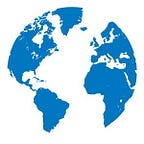Global AIDS Day: We cannot change what we cannot see
By Jordyn Warren
In the fight to end the HIV/AIDS epidemic, our most precious resource is information.
Information I didn’t have four years ago, when I was on the other side of the world, sick for months at a time without a clue about what was happening to me. I was living in Australia at the time, and it wasn’t until I went back to the U.S. that I went to a doctor for answers.
I went to my local Planned Parenthood health center in Allentown, PA, because when you need information, that’s just where you go. During my appointment the nurse asked me if I have ever been tested for HIV. She never pressured me to take the test, but gave me information about it that I was hearing for the first time. I didn’t think much of it, but I decided to take the test because it was free. A few days later, I received a call from the nurse that I tested positive for HIV. I was afraid. I didn’t tell anybody about it, because I didn’t know if I could tell people whether I was going to be okay or not.
At that second visit, when I went back to Planned Parenthood to be made aware of my status the staff there were extremely helpful, optimistic, and supportive. This was the first time I received accurate, comprehensive information about HIV. I learned it wasn’t as bad as I thought it was. They assured me that I was going to be okay. I was referred to a health center in Florida that could give me treatment, and I was finally able to tell my friends and family that I was going to live a normal life.
I had no job, no insurance, but I finally had the information I needed to take care of myself and move forward.
Today, on World AIDS Day, we have a chance to do better — to make information about HIV available to everyone who needs it.
For the last four years, the outgoing Trump administration’s entire approach to problems has been to suppress information. The global gag rule, which denies foreign aid to health organizations that provide, refer, or even mention abortion to their patients. Under the Trump administration, that rule has expanded to all global health funding including for HIV/AIDS, and created a chilling effect on the already tenuous health systems that people in low- and middle-income countries often rely on.
If COVID-19 has taught us anything, it’s that public health crises do not respect national borders. We know none of us are truly safe until all of us are safe. We cannot leave people behind in our response to HIV/AIDS if we are going to end the epidemic.
With new leaders in place next year, we can begin to get people what they really need: unbiased, comprehensive, science-based information. That starts with ending the global gag rule, rejoining the World Health Organization and coordinating with the global community, and investing in evidence-based HIV programs that prioritize the needs of key communities at risk: adolescent girls and women, LGBTQ+ folks, and other key communities, like sex workers, people who use drugs, people who are incarcerated, and certain Indigenous or ethnic communities.
Globally, about 1 in 5 people living with HIV are unaware of their status. There are countless reasons why: no access to testing, fear and stigma, bad policy and underinvestment. So much of it boils down to the lack of information. People don’t know that you can live a normal life with HIV. They don’t know that PrEP and PEP, preventive treatments for people at risk of infection, are available. They haven’t heard from people living with HIV, to see that there is no shame in knowing your status and advocating for your own health.
We cannot change what we cannot see.
Today, I am very happy and healthy. I earned my master’s degree. Bought a house. And got engaged to the love of my life. I’m living my best life. Because I got the information I needed. And I cannot put a price on that.
Jordyn Warren is from Allentown, Pennsylvania. She received her Bachelor of Science in Communication with a concentration in Public Relations from Appalachian State University, where she played Division I field hockey. She lived and worked abroad in Australia and worked in various sectors before completing her Master of Mass Communication at LSU in 2019.
